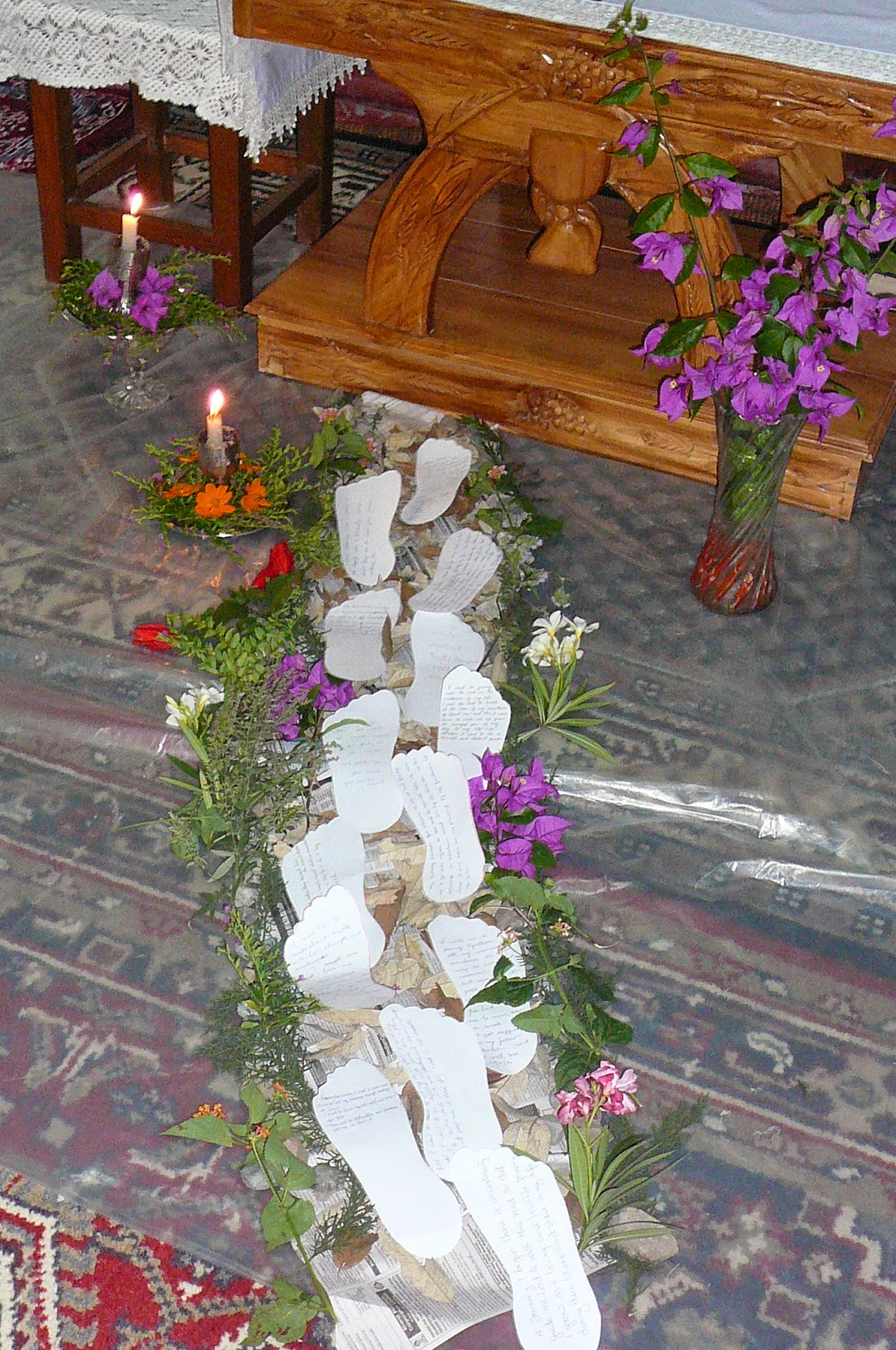The 49th Sumedha Sadhana – A Psychospiritual Wholeness Journey concluded at Sumedha Centre, Jharmari, Punjab on 4th May. This 12-week programme had commenced on February 11th.
Sumedha Sadhana is an inner journey in quest of greater healing and wellbeing.
Insights from faith and wisdom traditions, various
psychological theories of development as well as experiential tools and techniques
from Bioenergetics, NLP, Intensive Journal, Expressive Arts, Multi-Media,
Qigong, Breathwork, Prayer and Meditation practices, and Sacred Scripture are
used to explore and enhance one’s psychospiritual wellbeing.
There were 13 participants – 4 men and 9 women from 10 different religious congregations and one diocese in this edition of the Sumedha Sadhana.
The various modules were facilitated by Alex Clement, Edison
Fernandes, Johny Padinjar, Jose Parappully, Philip Pinto and Thomas
Kurianthanam.
Besides the academic programme there was time each weekend for integration of the week’s experiences, as well as for relaxation in group through picnics and visits to famous tourist locations.
There were two special events during the programme. One was the celebration of the Sumedha Foundation Day on 19th March, the Feast of St. Joseph who is the Patron Saint of Sumedha Centre. Most Rev. Ignatius Mascarenhas, Bishop of Simla-Chandigarh Diocese was the main celebrant on the occasion.
We also had Br. Kurias Cyriac SDB, a great friend of Sumedha Centre and who had helped to renovate the building to make it suitable for conducting the Sumedha programmes, as chief guest on the occasion.
The second was the visit of the Extraordinary Visitor to the Salesian Province of New Delhi, Rev. Fr. Biju Michael, a member of the General Council of the Salesians of Don Bosco in Rome. He met the participants and interacted with them.
“The programme helped me personally to open up myself. I was
able to let go of many things, forgive many people who have hurt me, accept
situations, and move on with my life. I feel I am healed of many things, especially
emotional wounds. As I go back, I want to begin a new life, looking at things
in new ways with the insights I received here. I am leaving this place with a
light heart and full of happiness.”
“I am fortunate to
attend this programme. It has changed my perspective about my life and it gave
me new life. It gave me opportunity to look back at where I am and challenged
me to live a better life. I could work with my hurts and emotional imbalances
and discover the root cause for it. This programme has changed me a lot.”
“When I entered Sumedha there was lot of questions in my mind, my heart was heavy, full of confusion, no clarity etc… But at the end now all my questions are answered. I feel light hearted, and have clarity into my life.”
“I am so delighted that I am enlightened and awakened, to be
a better version of myself – to be fully human with a compassionate heart. I am
grateful.”
“I came to Sumedha at a time when I was searching for
greater understanding of myself. At the end of the programme, I feel my
objective has been realized.”
“Sumedha enabled me to accept my past and my present and learn
to see God in the bits and pieces of my life’s journey.”
“This is the place where I was purified, renewed and felt
that I needed to follow Jesus more passionately.”
Living together with fellow Sumedhans has been a very enriching experience of community life.”
“Welcome and hospitality was excellent. Felt very much at
home.”
“Sumedha provided the best for our stay here.”
The 50th edition of Sumedha Sadhana is from June 23 to September 14, 2024. Registration is open. A few seats are available for this programme. Please contact sumedhacentre@gmail.com.
Please go to our updated web-page for more information: https://sumedhacentre.org













.jpg)


































.jpg)






